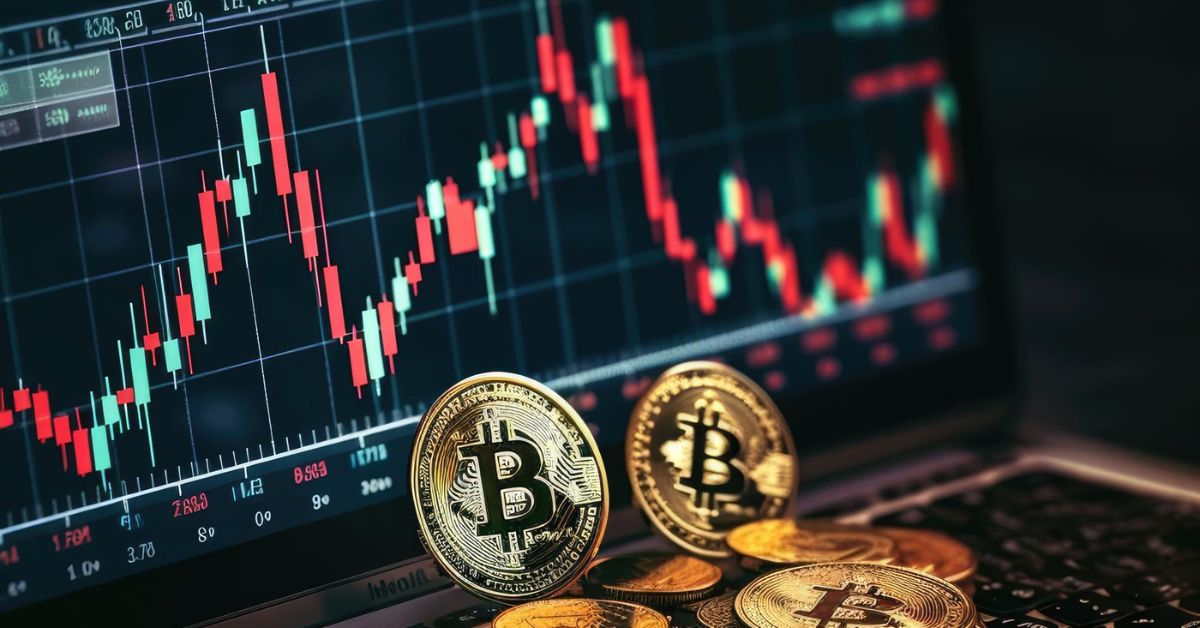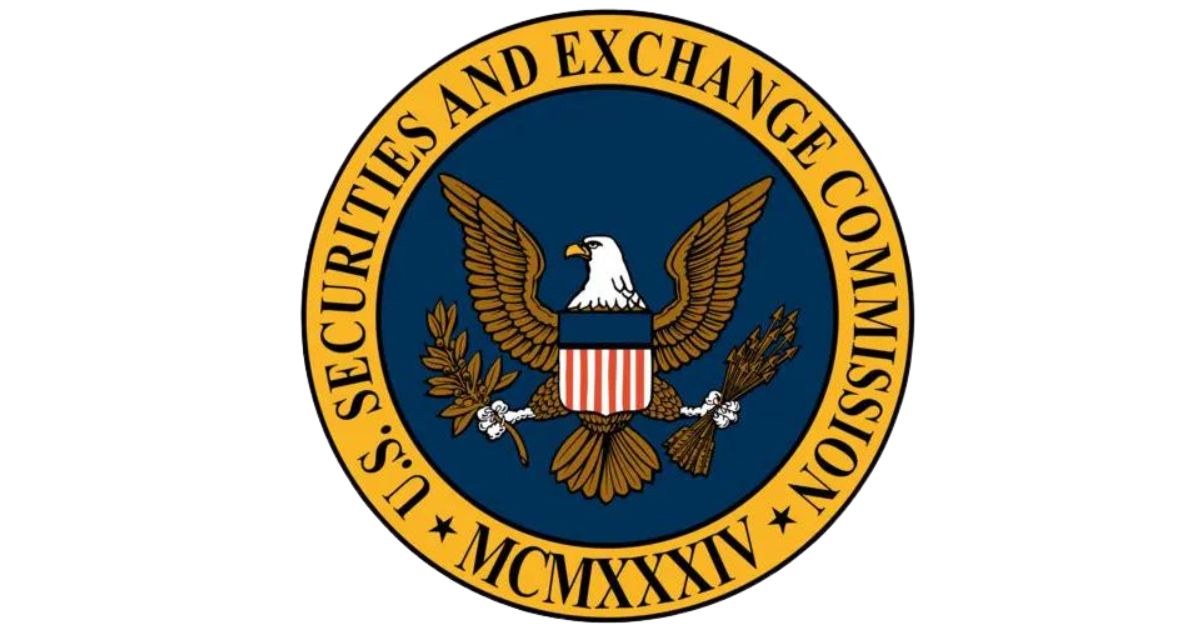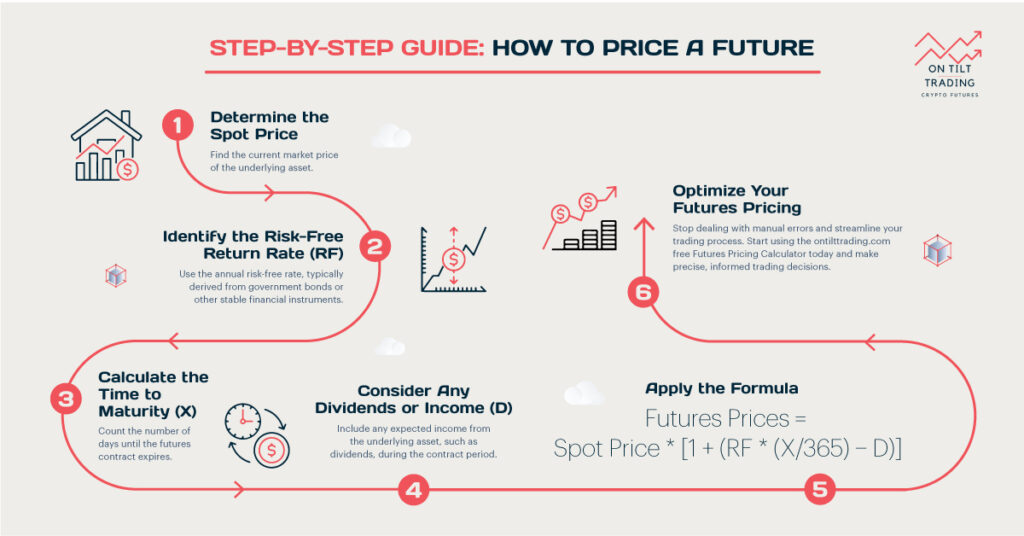Cryptocurrency futures trading has become a popular way for investors to speculate on the future. Many traders are eager to get into this market because of the potential gains. However, navigating the regulations and finding reliable platforms can be challenging, especially for those based in the U.S. So, you might be wondering, “Can I trade crypto futures in the U.S.?”
In this guide, we will explore the intricacies of trading crypto futures in the U.S. Choosing the right trading strategy and understanding the legal landscape are essential for navigating the crypto futures market in the U.S. effectively.
What are Crypto Futures?

Crypto futures are financial contracts that force the buyer or seller to buy or sell a particular cryptocurrency at a set price and date in the future. In contrast to spot trading, where transactions happen immediately, futures contracts specify a future settlement date. In this way, traders can speculate on cryptocurrency price movements without actually owning the underlying asset.
How Crypto Futures Work
In crypto futures, two parties agree on a price for a future date. The contract specifies the asset, quantity, price, and expiration date. For example, if you believe Bitcoin’s price will rise, you can enter an agreement to buy Bitcoin at the current price. Conversely, if you think the price will drop, you can enter a contract to sell Bitcoin. It allows you to profit from the price change.
Futures trading allows for leverage, letting you control larger positions with less capital. Leverage can amplify gains but also increase risk. Contracts can be settled in cash or by physical delivery. Most crypto futures are settled in cash.
Benefits of Trading Crypto Futures
- Leverage and Margin Trading: Futures trading offers leverage, allowing you to control large positions. It can potentially increase returns with less capital.
- Hedging Against Market Volatility: Futures contracts can hedge against price volatility. If you hold Bitcoin, you can use futures to protect against price drops.
- Potential for Higher Returns: Leverage in futures trading can lead to higher returns. However, increased risk requires careful management to avoid significant losses.
Can I Trade Crypto Futures in the U.S.?

Yes, you can trade crypto futures in the U.S. The Commodity Futures Trading Commission (CFTC) regulates this market. Major exchanges like CME Group and Bakkt offer crypto futures trading to U.S. residents.
However, ensure you use a platform that complies with U.S. regulations. Always check the legal status and licensing of any exchange before trading. Trading on regulated platforms ensures compliance and protection under U.S. law.
Legal Framework for Crypto Futures in the U.S.
In the U.S., crypto futures trading is regulated by several key agencies. The primary regulatory body is the Commodity Futures Trading Commission (CFTC). The CFTC oversees future markets, ensuring they operate fairly and transparently. The Securities and Exchange Commission (SEC) also plays a role, mainly if future contracts involve securities.
Current Legal Status
Crypto futures trading is legal in the U.S. The CFTC has approved several exchanges to offer these products. For instance, the CME Group and Bakkt are two primary exchanges where you can trade crypto futures legally. These exchanges must adhere to strict regulatory standards to protect investors and maintain market integrity.
Licenses and Compliance
Exchanges offering crypto futures must obtain proper licensing from the CFTC. They must comply with numerous regulations, including those related to anti-money laundering (AML) and know-your-customer (KYC) protocols.
It ensures that the exchanges operate legally and transparently. As a trader, you must also comply with these regulations, including verifying your identity and reporting your transactions accurately.
Understanding the legal framework is important to ensure that you trade legally. It also provides confidence that the platforms you use are regulated and secure.
Major Trading Platforms for Crypto Futures
Several exchanges in the U.S. facilitate crypto futures trading. Each platform offers unique features, tools, and user experiences. Knowing what options are available can make choosing the right exchange easier.
CME Group

The Chicago Mercantile Exchange (CME Group) is one of the largest regulated futures exchanges in the U.S. It offers Bitcoin and Ether futures, allowing traders to hedge or speculate on price movements. CME Group’s contracts are settled in cash, providing a secure trading environment for institutional and retail traders alike.
Bakkt
Bakkt is another notable platform for trading crypto futures. It launched Bitcoin futures and options, focusing on institutional investors. Bakkt is known for its regulatory compliance and secure custody solutions, making it a trusted platform for serious traders. The platform also offers Bitcoin and cryptocurrency custody services, enhancing its appeal.
Key Features to Consider
When choosing a trading platform for crypto futures, consider the following features:
- Regulation and Compliance: Ensure the CFTC regulates the platform and complies with U.S. laws.
- Trading Tools: Look for platforms offering advanced charting tools, indicators, and risk management features.
- Fees and Commissions: Compare trading fees, withdrawal fees, and other costs associated with using the platform.
- User Experience: Choose a platform with an intuitive interface that fits your trading style, whether you are a beginner or an experienced trader.
Selecting the right platform is crucial for your trading success in the U.S. crypto futures trading market.
Strategies for Trading Crypto Futures in U.S.

Trading crypto futures requires effective strategies for success in this volatile market. Such as:
Fundamental Analysis
Fundamental analysis evaluates the factors influencing cryptocurrency prices. Traders analyze market trends, news, and developments to gauge price movements. Analyzing market sentiment, technological advancements, and regulations provides valuable insights for informed trading decisions.
Technical Analysis
Technical analysis focuses on historical price data and trading volumes to predict future price movements. Traders use tools and indicators like moving averages and the Relative Strength Index (RSI).
Identifying trends and critical support or resistance levels aids in making informed entry and exit decisions.
Risk Management
Effective risk management is crucial in crypto futures trading. The inherent volatility of cryptocurrencies requires strategies to protect your investments. Setting stop-loss orders and diversifying your portfolio are essential practices. Never risk more than a specific percentage of your capital on a single trade to mitigate potential losses.
Developing a Trading Plan
A well-defined trading plan is essential for future trading success. Your plan should outline goals, risk tolerance, and strategies for entering and exiting trades. It should also include guidelines for position sizing and when to take profits or cut losses. You can find helpful resources at Tilt Trading Store to assist you in building your trading plan.
Keeping Up with Market News
Staying informed about the latest crypto market news is crucial for traders. Market sentiment can change rapidly due to regulations and technological advancements. Following reputable news sources and engaging with the trading community provides valuable insights. This knowledge can help you make timely trading decisions.
Risks and Challenges of Trading Crypto Futures in the U.S.

The U.S. crypto futures market carries several inherent risks and challenges that traders should be aware of. Such as:
Market Volatility
The U.S. crypto futures market is characterized by significant market volatility. Cryptocurrency prices can experience sharp fluctuations within short timeframes, leading to potential losses for traders.
While this volatility can create opportunities for profit, it also poses a substantial risk, especially for those unprepared for sudden price swings. Traders in the U.S. must be vigilant and develop strategies to navigate this unpredictable landscape.
Leverage Risks
Many U.S. trading platforms offer leverage for crypto futures trading. Leverage can amplify profits, but it also increases the risk of losses.
A slight adverse price movement may trigger a margin call or liquidation of your position. U.S. traders must understand the mechanics of leverage and use it judiciously to avoid significant financial consequences.
Regulatory Uncertainty
The regulatory landscape for cryptocurrencies and futures trading in the U.S. is still evolving. The Commodity Futures Trading Commission (CFTC) oversees crypto futures, but ongoing regulatory changes can impact trading practices and product availability.
Staying informed about regulatory developments is essential for U.S. traders to ensure compliance and adapt their strategies accordingly.
Emotional Trading
Emotions can heavily influence trading decisions, leading to impulsive actions. Fear and greed often drive traders to deviate from their strategies, resulting in poor outcomes.
U.S. traders must cultivate discipline and adhere to their trading plans to mitigate the emotional toll of the market’s ups and downs.
Security Risks
Security remains a paramount concern in the U.S. crypto futures market. Cybersecurity threats, including hacking and phishing, can jeopardize funds held on trading platforms.
For U.S. traders, selecting reputable, regulated exchanges with robust security measures is essential. Additionally, employing secure wallets and two-factor authentication can enhance the safety of investments.
FAQs
Are crypto futures legal in the U.S.?
Yes, crypto futures are legal in the U.S. The Commodity Futures Trading Commission (CFTC) regulates these futures contracts. This regulatory oversight ensures that trading adheres to established guidelines. However, traders must use registered exchanges that comply with U.S. laws.
Popular platforms like the Chicago Mercantile Exchange (CME) offer regulated crypto futures products. Before engaging in futures trading, traders must understand the legal framework. Staying informed about any regulatory changes is also crucial to ensure compliance. Overall, trading crypto futures in the U.S. is legitimate when conducted through the proper channels.
Is crypto trading allowed in the USA?
Yes, crypto trading is allowed in the USA. Individuals can buy, sell, and trade various cryptocurrencies through numerous exchanges. Platforms like Coinbase, Binance US, and Kraken are popular options for traders. However, it’s essential to use regulated exchanges that comply with U.S. laws.

The U.S. Securities and Exchange Commission (SEC) and the Commodity Futures Trading Commission (CFTC) oversee trading activities to ensure compliance. Additionally, states may have their own regulations regarding cryptocurrency trading. Staying informed about legal requirements and regulations is crucial for anyone looking to trade crypto in the U.S.
Is crypto margin trading allowed in the USA?
Yes, crypto margin trading is allowed in the USA, but it comes with specific regulations. Many exchanges offer margin trading, allowing traders to borrow funds to increase their buying power. However, platforms must comply with the Commodity Futures Trading Commission (CFTC) regulations.
Exchanges like Kraken and Bitfinex provide margin trading options for U.S. customers. Traders should be aware of the risks involved, as margin trading can amplify gains and losses. Understanding margin requirements and using risk management strategies to protect your investments effectively is essential.
Do crypto traders pay tax in the USA?
Yes, crypto traders must pay taxes in the USA. The Internal Revenue Service (IRS) classifies cryptocurrencies as property for tax purposes. It means that capital gains taxes apply to profits made from buying and selling cryptocurrencies. Traders are required to report gains and losses on their tax returns.
Additionally, receiving cryptocurrency as payment or earning interest on crypto holdings may also trigger taxable events. Keeping accurate records of all transactions is crucial for calculating taxes owed. It’s advisable to consult a tax professional for guidance on crypto-related tax obligations.
Read More: Advantages Of Futures Contracts Over Forward Contracts
The Takeaway
Crypto futures trading is a viable option for traders in the U.S. So, a thorough understanding of the legal framework and its associated risks is essential for success. The use of effective trading strategies can improve trading outcomes and reduce the possibility of losses. Knowing market trends and regulatory changes will help you navigate this dynamic environment. Always prioritize risk management and discipline in your trading approach. Embrace the opportunities while being mindful of the challenges that lie ahead.



